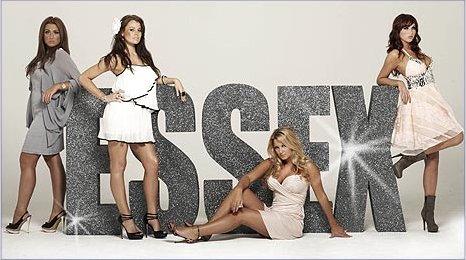What is the true meaning of 'Essex girl'?
- Published
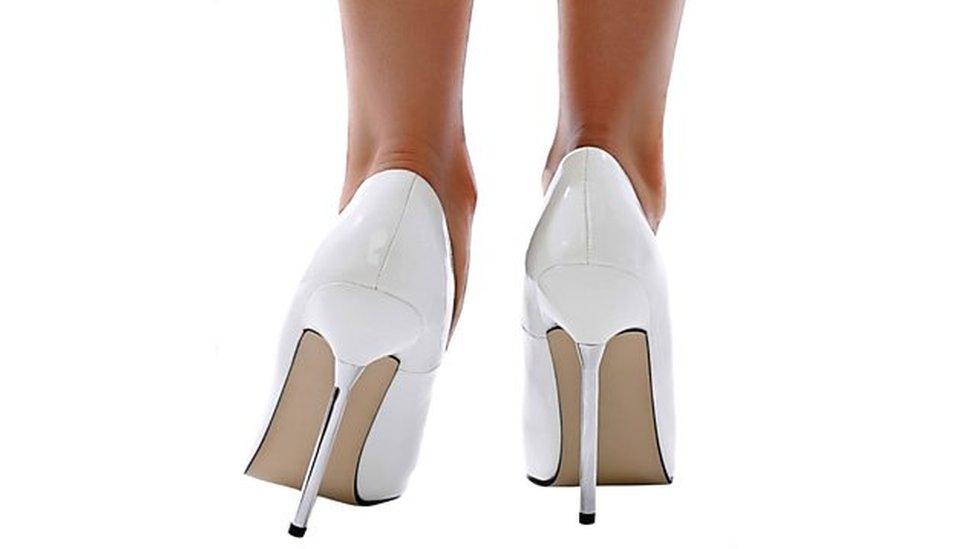
The hackneyed cliché of white stilettos is a thing of the past
"Essex girls" have long been mocked as thick, promiscuous and lacking in class. But a campaign to turn the hackneyed clichés on their heads is fast gathering pace. The BBC's Jodie Halford asks whether being from Essex is a disadvantage in modern life?
A few years ago, I was talking to a colleague over the phone when he asked me my name.
"Jodie," I replied.
"Wow, that's an appropriate name for someone from Essex," he said. "Conjures up images of white stilettos and fake tans."
If I had hailed from elsewhere in England, I am confident he would not have made such a remark. But then, "Essex girls" have come to expect a certain amount of sneering when our origins are discovered.
It is all the fault of a decades-old stereotype which is so ingrained in British culture that it has its own entry in the dictionary.

The Oxford English Dictionary definition of Essex girl
The origins of this label possibly lie with the concept of Essex man - that almost forgotten relative of the Essex girl - which reared its head in the early 1990s.
Journalist Simon Heffer used the term to denote a new type of Conservative voter who was "young, industrious, mildly brutish and culturally barren". Such men were typically self-made and had benefitted from the policies of Margaret Thatcher, he said.
The county's women were soon to be stereotyped too.
An article in The Independent from November 1991 related the recent "craze" for Essex girl jokes.
They often went something like this: "How does an Essex girl turn on the light afterwards? She kicks open the car door."
The newspaper said the jokes had been imported from the United States, where they had originated as "blonde" jokes before being adapted for a British audience.
Add to that shows like Birds of a Feather - and later The Only Way is Essex - and the reputation of the county's women was firmly cemented.
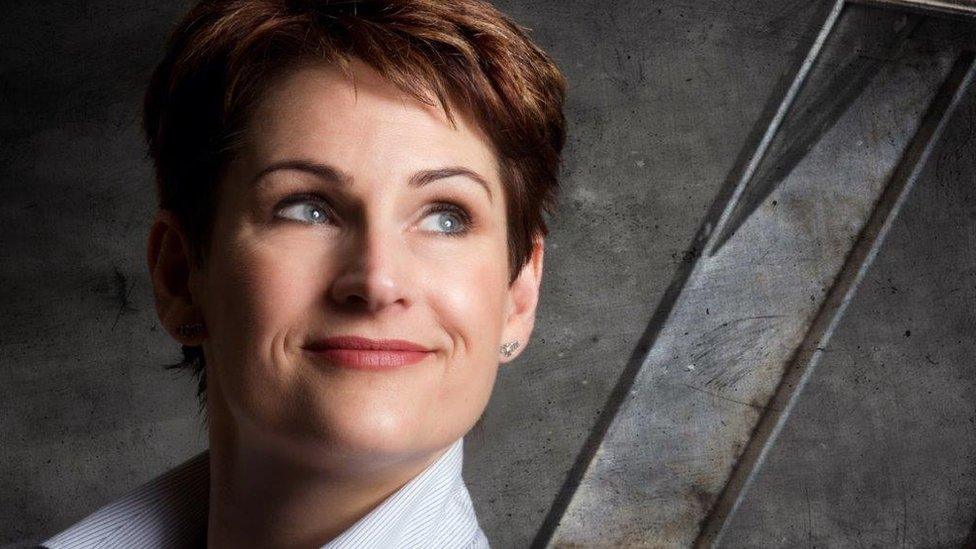
Dr Terri Simpkin said Essex girl's negative meaning was developed in the 1980s and 90s
Dr Terri Simpkin, a lecturer in leadership and corporate education at Anglia Ruskin University, said the term Essex girl was first recorded in 1892 but its modern connotations date from the late 1980s.
"There's that connection between post-war migration out of London into the new towns and elsewhere with the decline of manufacturing and the rise of professional occupations," she said.
"Essex became a corridor between dormitory towns and London, so we saw a rise in people having social mobility.
"Out of that came a level of snobbery and a disparaging view of people who had become more aspirational and affluent.
"But with women, there was gender discrimination as well, because so-called Essex girls weren't wilting wallflowers - they were more overt as sexual beings, they took control of their own sexuality."
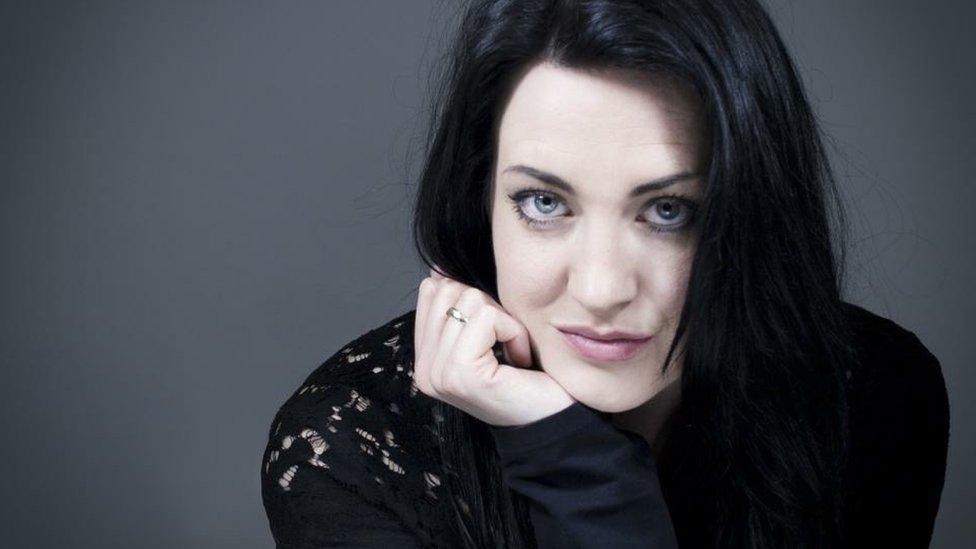
Southend-on-Sea playwright Sadie Hasler says the Essex girl stereotype is "utterly moronic"
Sadie Hasler, 36, a playwright and columnist from Southend-on-Sea, has encountered her fair share of Essex girl prejudice.
"The most common thing when you mention where you're from to people who aren't from there is that initial glimmer in their eyes," she says.
"You can't hear the word Essex without having a cognitive flash of all the stereotypes. It's part of the battle, all those years of history behind the word."
Ms Hasler, who has worked as an actor and comedy performer, said she moved away from the industry because her accent and age meant she was being given a narrow range of roles where she was "asked to wear PVC catsuits, go topless, always be sexual".
"If I'd been from another county, I don't think that would have happened," she said.
"When I was touring, and doing lots of character comedy, I saw more Essex stereotypes far more widely in other parts of the country than in Southend."
"Travelling into London, people are always surprised to learn I have a brain," she adds. "It's almost like they're saying: 'Well done, you've escaped Essex!'
"It makes no sense for people to feel that way - it's utterly moronic, in fact."
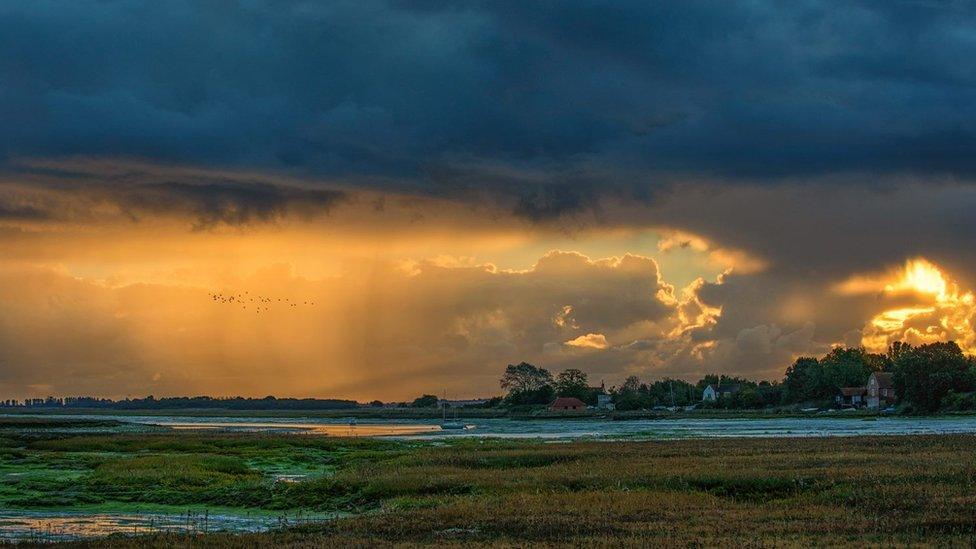
Essex is about more than just stereotypes, as this image of Landermere Wharf in the Tendring district shows
Last autumn, Essex girls were splashed across newspapers and television screens once more, when two bloggers started a petition to remove the definition from the dictionaries.
The Oxford English Dictionary refers to her as "unintelligent, promiscuous, and materialistic", while Collins adds "devoid of taste" to the mix.
Juliet Thomas and Natasha Sawkins, from Motherhub, decided to do something about it.
"We asked the dictionary if there was another example of a stereotype defining someone from a particular area," Ms Thomas said. "There wasn't.
"It's not for us to define what it means, but people have started to reclaim it and give it a far more positive meaning - it's just that there's currently no alternative definition."
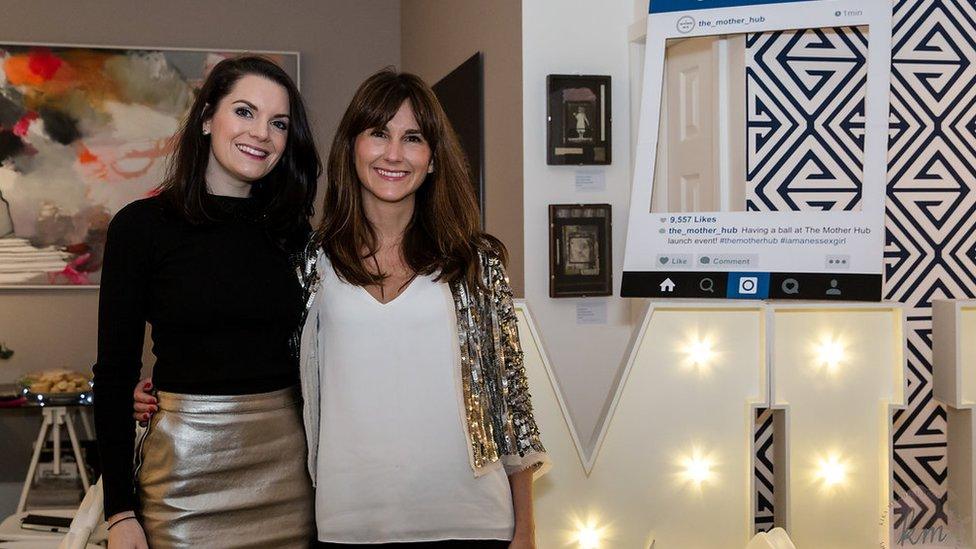
Juliet Thomas and Natasha Sawkins are campaigning to change or remove the dictionary definition of Essex girl
The Essex Girl petition was run alongside a social media campaign with tweets from hundreds of women who wanted to reclaim the term.
Great British Bake Off winner Jo Wheatley, writer and vlogger Giovanna Fletcher and Olympic sailor Saskia Clark were among those who threw their support behind #iamanessexgirl.
"We didn't feel successful women in Essex were being talked about enough, with most of the focus going to the lazy stereotypes," said Mrs Thomas.
Another organisation celebrating the county's women is the Essex Women's Advisory Group (EWAG), a charitable foundation set up to "challenge negative stereotypes by promoting the confidence and achievements of Essex women and girls".
Its chair, Juliet Townsend, said she had heard of young women pretending they were from elsewhere when going for jobs outside of the county.
"They're not confident to say they're from Essex, or they feel their accent or what they wear is the subject of ridicule," she said.
"I'm so proud to be an Essex girl. Silly jokes about it are really boring, and make me judge whoever who cracks them.
"But there are so many people who don't have that confidence to brush off the comments and jokes - we want to empower those people to have the confidence not to feel that way."

Shows like The Only Way is Essex were criticised for playing up to the stereotype
So what does it really mean to be an Essex girl in 2017?
Emmerdale actress Zoe Henry believes Essex girls are "strong, successful and independent".
She grew up in Ilford - part of the London borough of Redbridge since 1965, but still considered Essex in many people's hearts.
"I left home at 21 and moved to Manchester," she recalled, "and I was embarrassed to tell people where I was from. The stereotype had informed how I felt.
"But the older I got, the more confident and proud I became to tell people. We're strong minded, strong willed - and we know how to have a great time."
Mrs Thomas and Mrs Sawkins - who were born outside of the county but have lived there for a number of years - simply want people to continue to "reclaim the term" and give it a more positive meaning.
"We knew getting the dictionary changed wouldn't happen overnight - it wasn't about that," said Mrs Sawkins. "It's about bringing it to people's attention, and celebrating the success of women from Essex - real women doing amazing things".
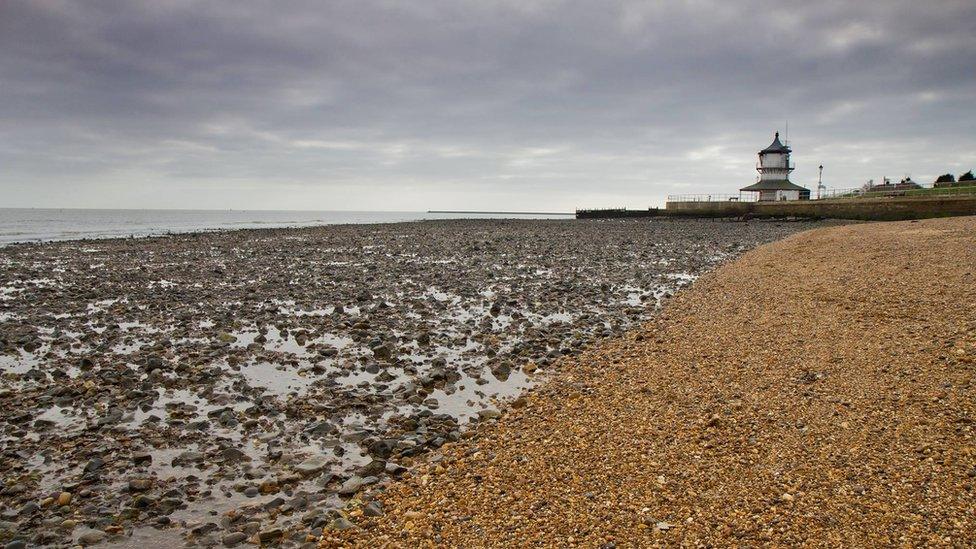
The Essex Way runs from Harwich (pictured) to Epping
Wednesday was International Women's Day and Ms Townsend, from EWAG, said she planned to raise awareness of her campaign through a sponsored walk along the Essex Way - an 81 mile (130km) trek from Epping to Harwich.
"My version of being an Essex girl can be completely different to someone else's," she said. "There's no right or wrong way of being an Essex girl.
"It's important to remember the cliché, the heightened version, exists because Essex girls can be proud of looking good while having brains."
Playwright Ms Hasler believes work should be done in schools in the county to give pupils, both male and female, a degree of assertiveness, and to teach them "it's ok to challenge the stereotype."
"If you could take every negative stereotype about Essex girls, and turn them into positives, it would be amazing to see Essex girl come out and say love your body, make the most of what you've got, own it, don't take lip from anyone, say what you think, defend yourself and don't be a wallflower," she said.
"The thing about Essex girl is she actually represents lots of positive messages for women - but they're currently dressed up in the most hideous way."
- Published25 October 2016

- Published30 March 2015
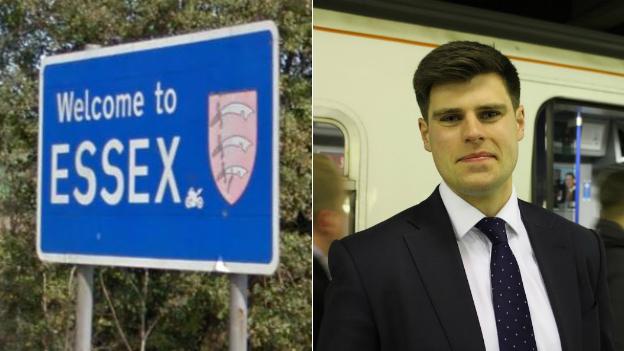
- Published12 October 2010
